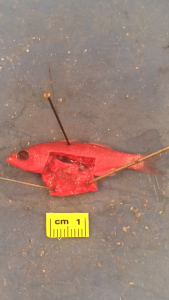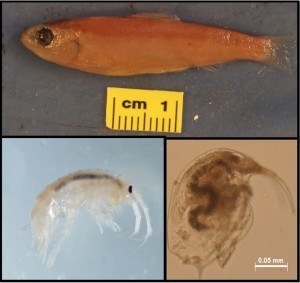Invasion of zebra mussel (Dreissena polymorpha) in the Hudson River sharply reduced phytoplankton biomass and markedly altered estuarine energy flow. Previous studies suggest that early-stage fishes of several species were negatively impacted by the invasion, including the Striped Bass (Morone saxatilis) and American Shad (Alosa sapidissima). While abundance, growth, and distribution of bass and shad are well documented throughout the zebra mussel invasion, diet and feeding success have been unanalyzed. The objective of this study is to analyze feeding success, physiological condition, gut fullness, and diet composition of these early-stage fishes over multiple years, including pre-invasion and post mussel invasion years. We hypothesized that feeding success and condition would decrease in mussel impacted years and that diet would shift towards a more littoral based diet rather than pelagic. Analysis to test this hypothesis is possible thanks to 21 years of early-stage fish samples collected as part of the Hudson River Utilities’ long-term monitoring program.
Please check back often for research updates.


